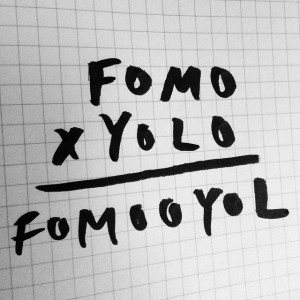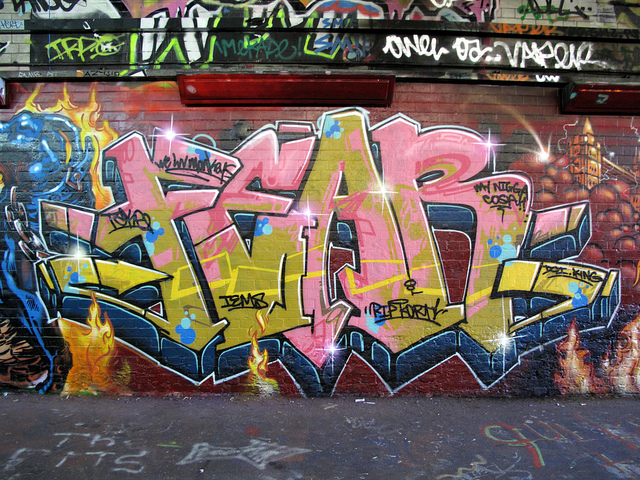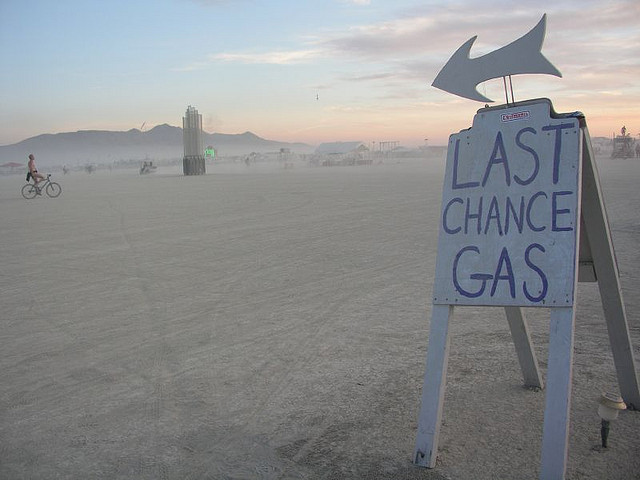No FoMO
The fear of missing out leads a lot of creators to sign bad contracts.
I know, because I’ve talked to a lot of smart, curious, professional creators who’ve signed bad contracts. And I know that signing those contracts had very little to do with how smart the creators were and just about everything to do with the fear of missing out.
The stories I hear are remarkably similar:
The contract they’re given doesn’t quite match up with the story they’ve been told about what a great opportunity this is or how this deal will legitimize their career.
The creator asks questions about the contract and the publisher (or client or collaborator) responds as if the creator is a newb with little to no business sense. “Do you really want to push this? Yes, the contract is tough, but that’s because this opportunity is exceptional. Do you know the risk I’m taking on you?”
And while the contract scares the creator a little, the idea of missing out on this deal scares them a whole lot more.
So they sign. And then they wish they hadn’t.
I can’t swoop in and save everyone from crappy contracts. And I (unfortunately) can’t prevent manipulative jerks from trying to take advantage of creators.
But I can tell you how to battle FoMO.
This isn’t the only time someone will offer you work.
Being a creator is tough.
Yes, you get to do something you love, but that doesn’t mean you’re always getting to do the work you want to do or the the recognition that comes with it. There are pay-the-rent jobs, gigs that no one will ever see, and projects that help refine your craft but do little to feed your soul. No one starts out being Kelly Sue DeConnick (not even Kelly Sue DeConnick).
When you’re offered a gig that looks like it could be a step above your current slog, or help propel you toward your goals, it’s hard to think rationally. Add to that the popular “wisdom” that you have to take risks if you want to get ahead, and it’s near impossible to resist the promise of publication or recognition.
But if the deal stinks, if it pays laughably below market rates, or if you’re signing away the rights to a story you’ve lovingly crafted for years, the promise is a lie. The risks you have to take for this “opportunity” won’t get you closer to your goals; they’ll just rob you of your time and talent.
If you’re looking down the barrel of an opportunity and feel the fear that this might be your big break, repeat after me:
This is not the last time I will be offered work. My hard work will create more opportunities. I am worthy of being treated fairly.
Even if this does end up being a great deal and a wonderful opportunity, you need to know that it isn’t your last.
Ask Questions
People who offer crummy contracts tend to demand you make your decision quickly. Sign or walk away, they don’t have time for your dilly dallying!
They do this because they know if you talk to other creators, you’ll likely find out that their deal stinks.
So if you have a contract that’s buzzing in your hands, ask questions.
Talk to other professionals and ask if the terms you’re being offered are normal for this type of work. Don’t hang out with other pros irl? Reach out to your online community (folks you’re friendly with, not pros you admire from afar) and seek their advice.
Talk to people who’ve worked with this person or company before. Did they get paid on time? How was the working relationship? Were there unreasonable demands? What were they? Sometimes good people have bad contracts. One of the easiest ways to discover what it’s like to do business with someone is to talk to the people they’ve done business with in the past.
Talk to an attorney. Please. I realize I have a dog in this fight, but honestly, talking to a professional can save you a ton of time in the long run because we look at contracts all the time. We know where people bury the bodies in agreements. Most attorneys will let you pay for an hour of their time to sit down and go over a contract with you. If this really is the big break you think it is, it’s worth the investment to double check.
Does this really support your goals?
Sometimes opportunities look like they’ll help us reach our goals but on closer inspection they turn out not to have a key ingredient for the success we envisioned.
I think it’s best to do that closer inspection before you sign the contract.
To do it well, though, you need to have specific, immediate goals.
“I want to write for Marvel” is a great ultimate goal, but it’s such a big goal, it’s hard to know what to do (or not do) to get there.
Smaller goals might include, “I want to work with artists who’ve worked for Marvel,” “I want to write for publishers that my favorite Marvel editors admire,” “I want to do work that will help increase my fan base,” “I want to have one of my comics published in the following anthologies….”
These smaller goals help you meet your ultimate goal, but they can also help you decide if the deal you’re being offered is worth your time. Is it letting you work with someone you’ve said you want to work with? Is their distribution good enough to give you a boost in name recognition? What’s happened to the Twitter following of the last three writers they published?
If a deal or opportunity doesn’t get you closer to your goals, it’s not worth your time.
Red Flags
Finally, here are a few red flags to look out for:
- Contracts that claim to be “creator owned” but have you assign your copyright to the publisher.
- The person offering you the job speaks badly of the last person (or handful of people) they worked with.
- Pressure that you make a decision about their offer quickly, or suggestions that “other people” wouldn’t take as long as you’re taking to consider the opportunity.
- A take-it-or-leave it attitude about the contract. Many publishers have standard terms, but most legitimate publishers will negotiate with you, and all of them will at least entertain questions about the terms.
- A skittish response to questions about money: the rate, payment terms, list price, recent sales figures, etc.
Being a professional creator requires endurance. You have to be willing to work hard and occasionally do jobs you’d rather not do. But you do not have to be taken advantage of. You don’t have to sign exploitative contracts or sell rights to your most precious work for the opportunity to be successful. Don’t let the fear of missing out dictate your career.
Categories: Self Awareness Tools







[…] that many (especially creators at the start of their careers) feel obligated to sign out of fear of missing out. The only response that a creator should ever have to such an overture is No, pay […]